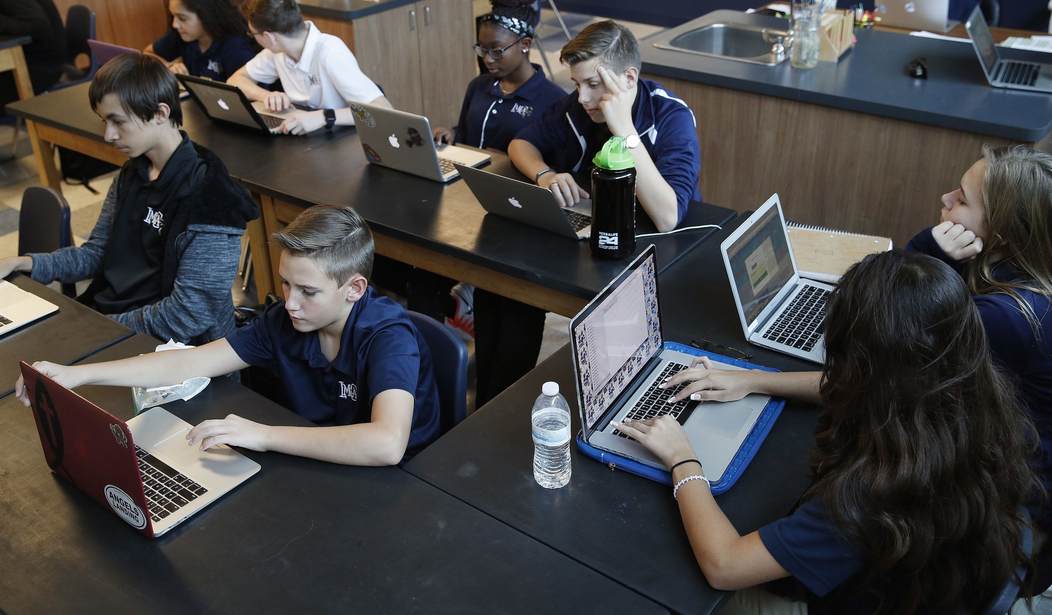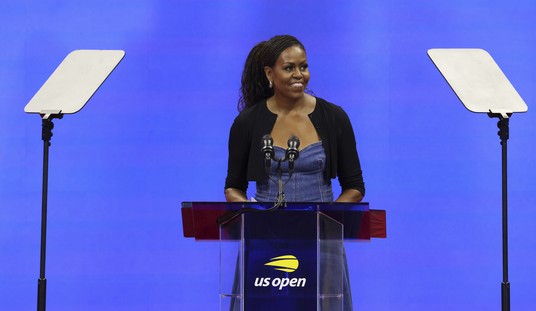Now that summer has ended and classrooms have opened across the country, a spotlight shines on the latest research showing the value of parents being able to choose the best education for their children. Of course, proponents of public-option-only for K-12 schooling stay poised to shut off the light and restore darkness when they can. About bulb-dimming, more below.
First, a new study by the Urban Institute, a well-respected and nonpartisan research organization, has documented long-term education benefits for students from school choice programs.
The researchers examined the Florida Tax-Credit Scholarship Program, which has the nation’s largest school-choice enrollment; the Milwaukee Parental Choice Program, the first school-choice voucher program; and the Washington DC Opportunity Scholarships, the only federally run school voucher program. You can read the study here.
Florida scholarship students led the way. Fifty-seven percent of students who began the program from 3rd to 7th grades went on to college, compared with 51 percent of their non-scholarship peers. Comparative results were also positive for Milwaukee voucher students, although findings on this particular index were “neutral” for DC Opportunity Scholarship students. Other studies have shown gains for the DC voucher students on other measures of effectiveness, such as absenteeism and school safety.
Not of minor significance is how choice programs achieve results superior or equal to government schools at a far lower expenditure of taxpayer money. For instance, Florida’s scholarship amounted to just 69 percent of the state’s average per-pupil spending, while Milwaukee’s voucher was at 67 percent. The DC scholarship, operating at just 46 percent of the DC public school per-pupil average, merits praise for delivering awesome bang for the buck.
Recommended
Of course, no credit for good academic results and frugal spending will be forthcoming from would-be guardians of monopolistic education such as the teacher unions and schools of education. Indeed, weeks before release of the Urban Institute study, two education professors published a bizarre report taking offense at choice proponents who are finding positive results for school choice on indices other than test-score data.
In an article the Miami Herald recently republished, professors Christopher Lubienski and Joel Malin cried foul because (they contend) the choice advocates who originally sold vouchers as a way to raise test scores are now touting “non-academic” gains instead. The ed-schoolers slammed pro-choice think tanks for “moving the goalposts” to divert attention from a few recent studies supposedly showing zero or negative effects of private choice on student learning.
So it is “no fair!” to cite choice-students’ “attainment gains (such as high school graduation rates, or college attendance and completion) as evidence of the value of school choice? Or other favorable outcomes such as improvements in school safety, absenteeism, parental satisfaction, or racial relations?
The July 19 report from the research-focused Urban Institute had to take some of the wind out of the ed-profs’ sails. Surely all such indications of improved lives for students and their families (many of them underprivileged) should be cause for celebration. But what of the ed-schoolers’ bodacious contention that the long-time school-choice advocates should stick to the original promise of improved test scores and not seek out and report other kinds of good outcomes?
A fatal flaw in that argument is that a whole slew of respected scholars now implicitly being called out (Greg Forster, Jay Greene, Paul Petersen, Martin West, Patrick J. Wolf, and others) were in fact doing early 21st century studies on the impact of choice on such factors as parental satisfaction, civic values, and racial and ethnic integration. Some of these studies even predated the landmark U.S. Supreme Court decision in 2002 (Zelman v. Simmons-Harris) upholding the constitutionality of school vouchers.
It is relevant to note that an EdChoice compendium of research lists 26 of 26 studies on parent satisfaction showing positive effects of school choice, six of seven indicating that vouchers enhance integration, and another six of seven pointing to elevated civic engagement.
Test scores remain important even though the crush of government-mandated assessment emanating from the Bush and Obama administrations has caused parents and educators alike to complain of over-emphasis on testing to the detriment of other values.
In any event, the ed-schoolers make a pathetically weak case for a negative voucher test-score “trend” causing advocates to hype “non-academic” results. They ignore the reality that test scores of voucher students typically improve the longer they stay in a program. One example was the DC voucher students’ completely erasing negative math outcomes after a third year of evaluation. The ed-schoolers’ study conveniently stuck with the second-year poor result.
Here is the big picture: Of 16 test-score analyses using gold-standard (random-assignment) methodology, 11 have shown students exercising private choice achieving better scores, while three have shown no visible effect, and three have recorded some negative effect.
Add in all the data collected from 1999 to the present about other ways students and families are benefitting from school choice, and you have a brilliant flame that no amount of truth-blotting from the dark side will ever extinguish.

























Join the conversation as a VIP Member